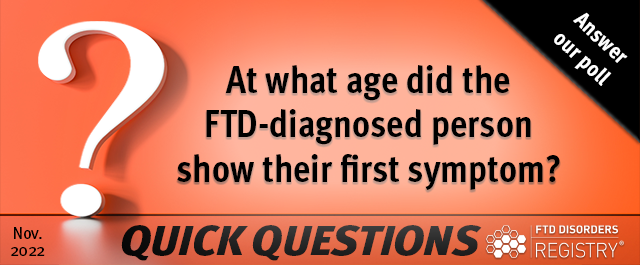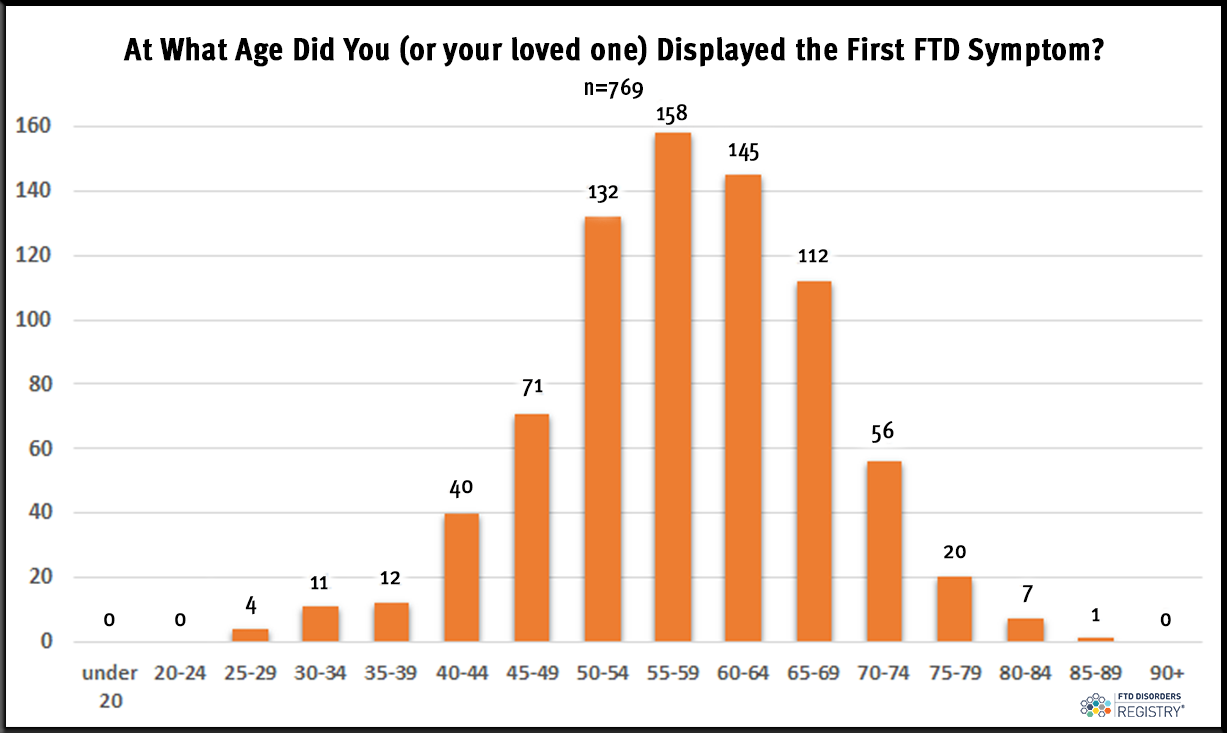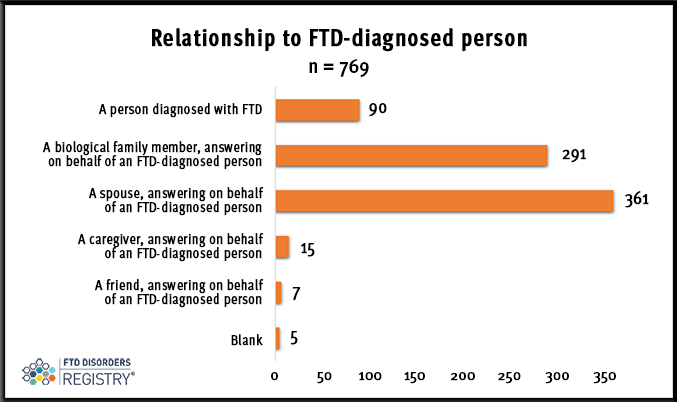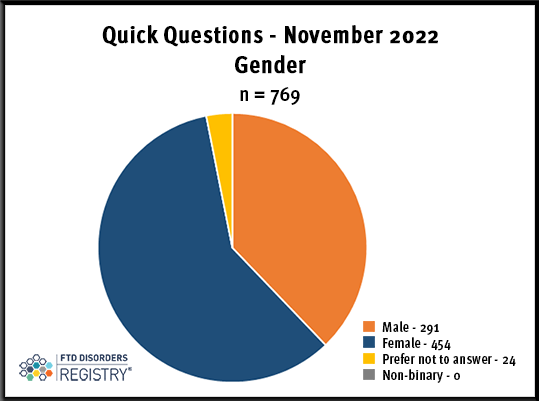PRESS & NEWS
Quick Question November 2022 Results: At what age did the FTD-diagnosed person show their first symptom?

The age range most reported for when the first frontotemporal degeneration (FTD) symptom appeared was between 55 and 59 years (158 people)
The age range most reported for when the first frontotemporal degeneration (FTD) symptom appeared was between 55 and 59 years (158 people), according to those who answered the FTD Disorders Registry’s November 2022 poll. This was closely followed by 60-64 (145 people) and 50-54 (132 people).
There were 769 people who answered our November question: At what age did the FTD-diagnosed person show their first symptom? The majority who replied were family members (39% biological relatives and 47% spouses).
Responses were received from people in 25 countries around the world with the most coming from the United States (676) followed by Canada (42), and Australia (15).
Additionally, answers came from people in all 50 U.S. states as well as the District of Columbia (4). The top five states with the highest number of respondents were California (64), Texas (47), North Carolina (40), Pennsylvania (37), and Florida (39).
RESULTS
The following charts and lists are based on 769 submissions.

- 0% reported Under 20 (0)
- 0% reported 20-24 (0)
- 0.5% reported 25-29 (4)
- 1.4% reported 30-34 (11)
- 1.5% reported 35-39 (12)
- 5.2% reported 40-44 (40)
- 9.2% reported 45-49 (71)
- 17% reported 50-54 (132)
- 20.5% reported 55-59 (158)
- 18.8% reported 60-64 (145)
- 14.5% reported 65-69 (112)
- 7.2% reported 70-74 (56)
- 2.6% reported 75-79 (20)
- 0.9% reported 80-84 (7)
- 0.13% reported 85-89 (1)
- 0% reported 90+ (0)

- Relationship to FTD-diagnosed person:
- 11.5% A person diagnosed with FTD (90)
- 38% A biological family member, answering on behalf of an FTD-diagnosed person (291)
- 47% Spouse, answering on behalf of an FTD-diagnosed person (361)
- 2% Caregiver, answering on behalf of an FTD-diagnosed person (15)
- 1% Friend, answering on behalf of an FTD-diagnosed person (7)
- 0.5% Blank (5)

- Respondent's Gender
- 38% Male (291)
- 59% Female (454)
- 3% Prefer not to answer (24)
- 0% Non-binary (0)
Together we can find a cure for ftd
The FTD Disorders Registry is a powerful tool in the movement to create therapies and find a cure. Together we can help change the course of the disease and put an end to FTD.
Your privacy is important! We promise to protect it. We will not share your contact information.



